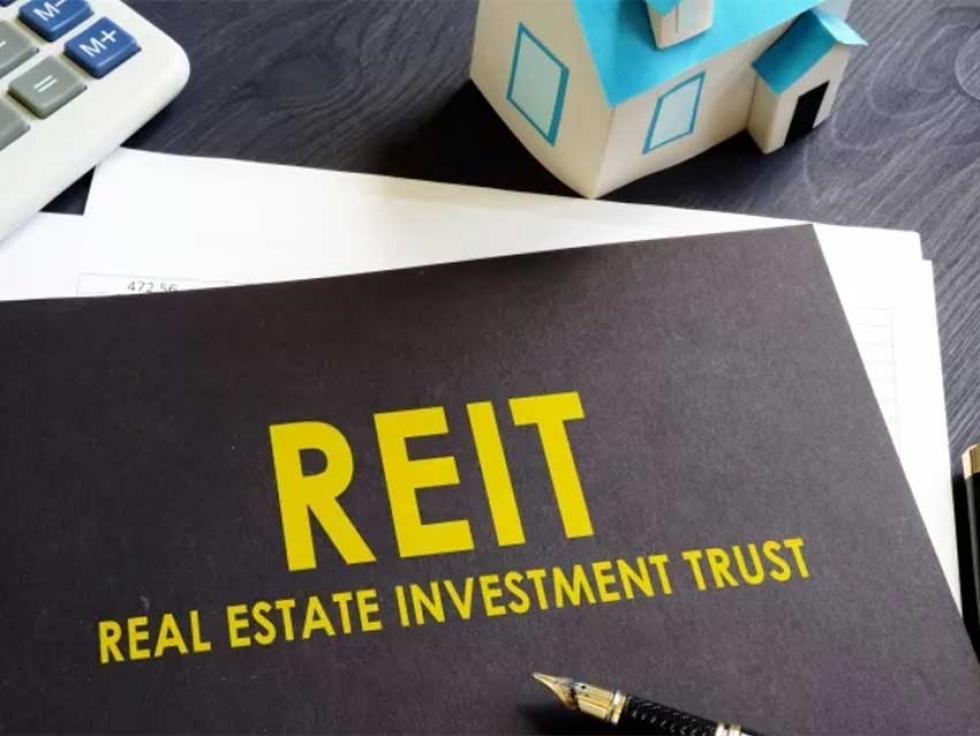
Nov
How to Reduce Risk and Generate Income with Halal REITs
Written by Sawitri Mardyani and Sameer AzamOne of the biggest challenges in halal investing is mitigating risk. In conventional (non Shariah-compliant investing), investors use bonds or GICs (Guaranteed Income Certificates) to lower their risk and exposure to the stock market. However, since these investments are interest-based, they can't be part of a halal portfolio.
A halal portfolio needs to be composed of equities, or shared ownership in real assets, such as companies which produce goods and services. Since businesses may make profits as well as suffer losses, this is where the risk comes in. While the fates and fortunes of individual businesses may go up and down, most businesses still need to occupy some real estate. One way to mitigate risk and diversify a halal portfolio is to invest in a Real Estate Investment Trust (REIT).
What is a REIT?
A Real Estate Investment Trust is a company that owns and, in most cases operates, income-producing real estate. REITs own many types of commercial real estate. One REIT might own a number of apartment buildings, another might have commercial offices, warehouses or shopping centers.
REITs don't just own the typical residential or commercial real estate properties that come to mind. They can also own the buildings that hospitals operate in; the real estate that houses the computers and servers that make up the "cloud" where we store data; the land on which cell towers stand; the building a hotel operates in; or even timberlands or forests which will later be used for timber. REITs that own warehouses or logistics centres, which are used to organize goods for shipping and delivery can thrive even when storefront and office real estate flounder during lockdowns. Generally one REIT will own a few types of real estate in many places within one country.
Publicly-traded REITs similar to stocks, mutual funds or ETFs (Exchange Traded Funds). You can buy shares for a few hundred dollars. The share price can go up or down depending on how much other people are willing to pay for them. And the REIT pays shareholders dividends from the rent that it collects. REITs give investors many of the benefits of having rental properties without the high cost of purchasing real estate or hands-on work and responsibility of being a landlord.
Benefits of owning REITs
Some of the advantages that REITs offer over owning private real estate include:
- Liquidity: Like other stocks, mutual funds or ETFs, REITs can be bought and sold easily at any time. Selling or buying real estate, on the other hand, requires a lot of time, effort, real estate agents and lawyers.
- Diversification: A REIT can invest in tens or hundreds of properties in different cities, so their income is not dependent on a single tenant or even the economic fortunes or woes of a single city.
- Passive investing: Investors in REITs don't need to worry about buying or selling individual properties, finding tenants, collecting rent, fixing leaks, or dealing with complaints. Investors only need to purchase shares in the REIT and let the professionals invest and manage on their behalf
- No expertise needed: Because REIT investors do not manage their own investments, they do not need proficiency in real estate or finance in order for an investment to be successful. However, an investor should understand the potential risks and benefits of an opportunity before investing
- Low investment minimums: REITs are one of the most accessible ways to invest in real estate, largely due to their low cost-of-entry. Investment minimums can vary across REIT types, but publicly-traded REITs and public non-traded REITs carry lower investment minimums than private REITs and active real estate investments, such as rental properties.
- Regular cash flow: For investors looking for regular income, REIT shareholders earn income from their REIT investments in the form of dividends. Unlike rental properties, which usually provide monthly cash flow in the form of rental income, REIT dividends offer monthly or quarterly cash flow.
Some drawbacks of owning REITs
While REITs can help investors get started investing in real estate with much less time or money than buying property directly, some REITs offer more attractive benefits than others. When choosing among REIT investment options, it is important to assess each one’s attributes, because they can vary in terms, returns, diversification, duration, and more.
It’s also important to evaluate potential disadvantages among REITs, including:
- Volatility: Publicly-traded REITs are traded on the stock market, which makes them prone to fluctuation with the rise and fall of the stock market regardless of whether or not the value of the property owned by the REIT has changed. These changes constantly affect the value of each share. For example, if a REIT invests in hotel properties in a region that suddenly gets negative news coverage, the value of that REIT can drop because people may be reluctant to buy it while that news is on their minds.
- Less control: Rental properties offer investors a great deal of freedom and flexibility, accompanied, however, by full economic responsibility. REITs on the other hand, burden investors with less responsibility, at the cost of control. REIT investors do not have a say in the operation of their investment, but they still share in its returns. This may be an ideal arrangement for a passive investor, an inexperienced real estate investor, or even an experienced real estate investor who does not have free time to devote to rental properties — but it’s a tradeoff that should be fully assessed before you choose to place your money in the hands of other managers.
How do we know if a REIT is halal?
Similar to the screening criteria for stocks a REIT must meet certain industry and financial ratios thresholds. Just as it wouldn't be halal to rent out property to a brewery or invest in a property using interest-based loans, a Shariah Compliant REIT must pass through certain screens.
Qualitative Screen
The qualitative screen looks at the business activity of the tenants who pay rent to the REIT. To be Shariah compliant, the REIT cannot generate income from tenants who produce or sell tobacco, pork products, alcoholic beverages (e.g. breweries, distillers, vintners, pubs, bars), conventional financial services (e.g. banks, pawn shops, insurance brokerages), military weapons and components, music, cinema, adult entertainment and embryonic stem cells The tenants in a halal REIT must also not be operating casinos, lottery or gaming services.
Quantitative Screen
The quantitative screen looks at the REIT's balance sheet, including how much interest bearing debt it holds. To be Shariah compliant, a REIT's interest bearing debt must be less than 33% of the value of its assets. Because most REITs are highly leveraged (they borrow a lot of money to invest in real estate), this quantitative screen rules out a lot of REITs from being Shariah compliant. There are other quantitative screening criteria as well, such as the amount of cash the REIT holds, but the main issue that tends to rule out most REITs from being halal is the debt that they hold.
How to invest in halal REITs
The easiest way to invest in halal REITs is through a financial advisor. An advisor who is knowledgeable in halal investing can identify Shariah compliant REITs based on an established screening methodology and use fundamental, technical, cycle and trend analysis to choose the best investments for your needs. A financial advisor can also help with taxes and estate planning. Their fees are usually a small percentage of the amount that's being invested. Most financial advisors work for clients who have a few hundred thousand or more to invest.
Investors with less than this minimum can invest in REITs themselves through online brokerages or an investment account at the bank. Many REITs are listed on the stock exchange the same way that publicly traded companies are. One simple way of checking if a REIT is Sharia compliant is through a halal stock finder or screening app. Not all halal stock finders include REITs in their database, so you may need to try several different apps to find one that does. It is also prudent to look into the methodology that the stock screening app uses to determine which REITs are halal.
As with any company, activities and balance sheets will change over time, so this screen of Shariah compliance should be repeated on a quarterly basis.
We do expect a Halal REIT ETF to come to the market in the near future. This would be an attractive option for many investors as it would allow them to invest in several halal REITs at the same time without needing to do research and Shariah complicance screening on each one.
*******
Sawitri Mardyani is the Islamic Finance editor at Muslim Link.
Sameer Azam is an Investment Advisor at RBC Dominion Securities. His expertise includes investment and retirement planning, tax minimization planning, halal and socially responsible investing, estate planning and charitable giving structuring.
To learn more more about the investment process click here
DISCLAIMER
The above information is presented on the understanding that it is for education and information purposes only. The author has not been retained to provide legal, taxation, accounting or other professional advice.
Any strategies, advice and technical content in this presentation are provided as general guidance, based on information that we believe to be accurate, but we cannot guarantee its accuracy or completeness.
Individuals should consult with a professional advisor to determine the suitability of the information and examples contained in this presentation before acting upon them. This will ensure that your own circumstances have been considered properly, and that action is taken on the latest available information. Market conditions, tax rules and other investment factors are subject to change. Past performance is not a guarantee of future results.
This article was produced exclusively for Muslim Link and should not be copied without prior permission from the site. For permission, please write to info@muslimlink.ca.


